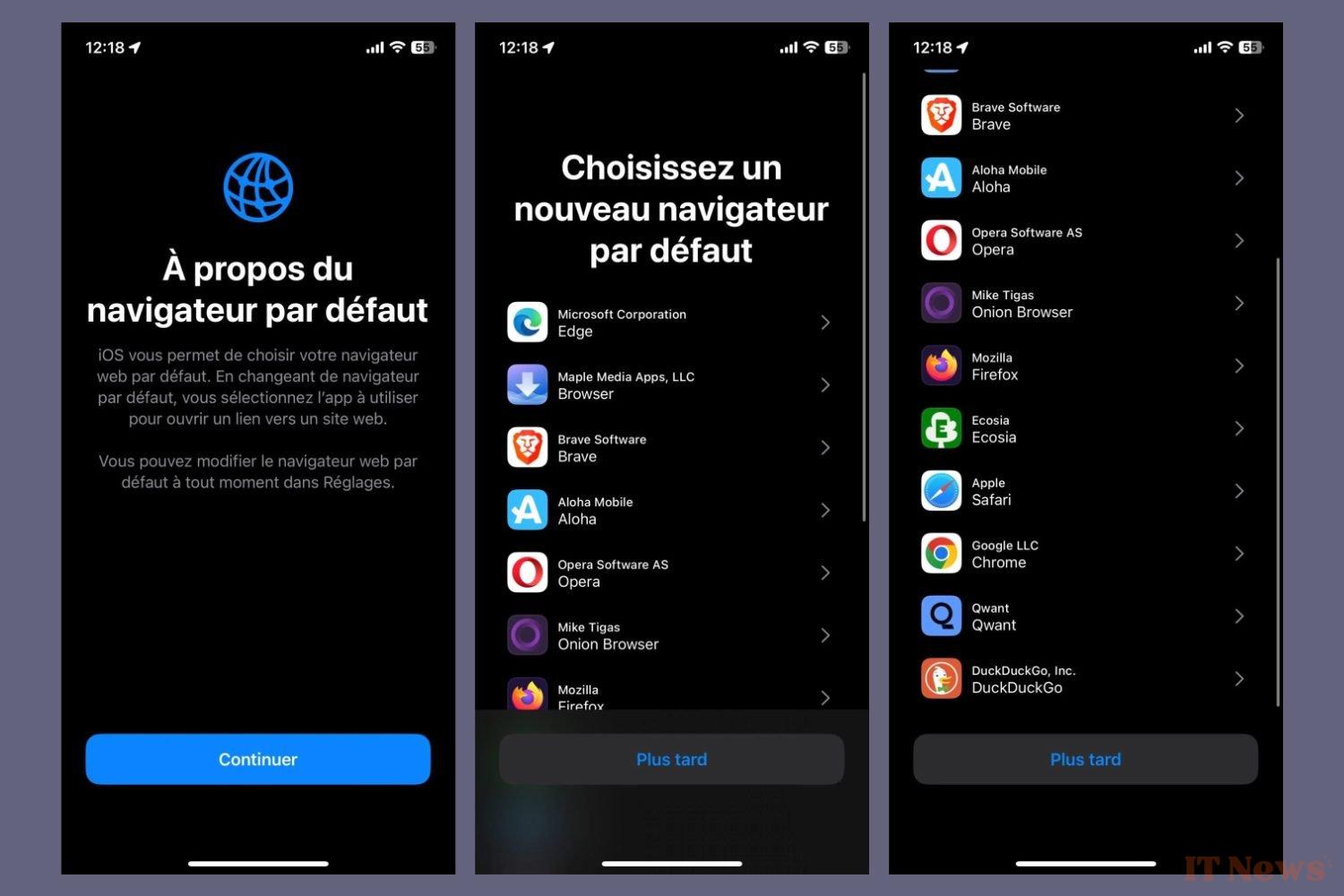Since the Digital Markets Regulation (DMA) came into force in March 2024, the two gatekeepers, Apple and Google, must give European smartphone users a choice of default browser. Both manufacturers complied, with varying degrees of goodwill, but the results a year later appear positive for alternative browsers.
Mozilla criticizes the application of the DMA
Mozilla is pleased to have seen the number of daily active users of Firefox increase by 99% in Germany and 111% in France on iOS. So of course, we would have liked the organization not to be satisfied with percentages whose numerical reference bases are unknown. After all, 100% of 2 users only ever means 4 users.
On iOS, as on Android, Firefox is starting from a long way back. Safari and Chrome are the de facto browsers, and even if it was already possible to change the default browser before the DMA, the presence of a selection panel has the merit of immediately reminding us of the existence of alternatives. And perhaps some users do want to take advantage of this opportunity to test other browser applications.
Mozilla nevertheless deplores "vague compliance plans" and "some obvious rule violations by [gatekeepers]" that prevent the DMA from achieving its objectives. But "we are beginning to see how targeted regulation can help overcome some of the obstacles to competition in the browser industry and what happens when the power of browser choice is truly in the hands of consumers.»
A few weeks after the launch of these famous selection panels, other browsers had also announced improvements in their user numbers in Europe.
Source: Mozilla



0 Comments